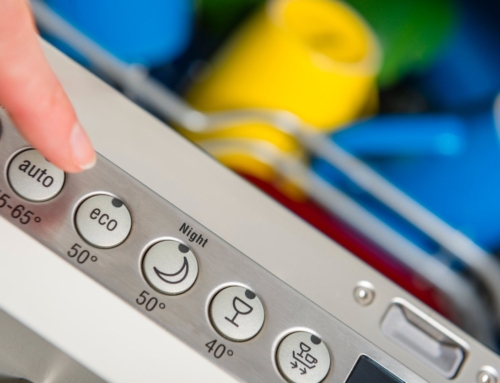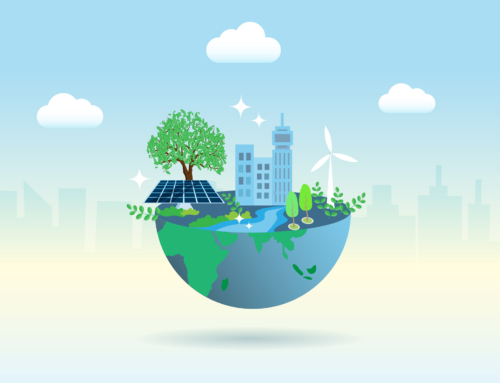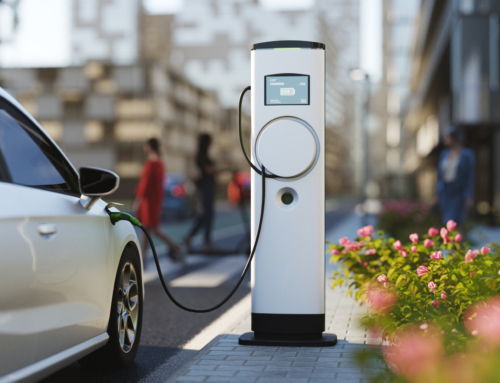Propane and natural gas are similar fuels used for cooking, heating, and powering anything from vehicles to electronics. Sometimes the two terms are used interchangeably, but propane and natural gas certainly have a long list of differences.
If you’re trying to decide between using either propane or natural gas at your home, check out our guide below. We’ll explain the physical differences between propane and natural gas, along with differences in price, the effect on the environment, and more.
Physical Differences
Natural gas is actually made up of several naturally occurring elements, including methane, ethane, butane, pentane, and propane. Many people are surprised to learn that propane is contained within natural gas. However, natural gas is mostly made up of methane and is cleaned before use to make it more efficient.
Natural gas is a fossil fuel that originated millions of years ago when plant and animal matter decayed underground. This type of fossil fuel is comparable to oil and coal, but it produces far less harmful emissions.
Propane is a refined fossil fuel, meaning it is a byproduct of the refining process of various chemicals. Most propane comes from crude oil or natural gas, after the propane is isolated and liquefied through extreme pressure.
Uses
Propane and natural gas can be used for the same purposes. Some of the most common uses include fuel for around the house or for businesses. Both propane and natural gas can fuel a gas stove, heat the home, or fuel a barbeque.
These gases can also be used as a refrigerant or propellant, or for an industry like agricultural heating and power generation. There are thousands of uses for propane and natural gas, plus many uses that are yet to be discovered.
Cost
Propane is much more expensive than natural gas. Some homeowners may believe that its energy efficiency makes up for this, but it doesn’t always. It depends on the current cost of natural gas.
If natural gas costs $15 per 1,000 cubic feet, for example, then $15 worth of natural gas would purchase about 1 million BTUs (a measure of energy). It would take about 11.2 gallons of propane to deliver those same BTUs. And since propane costs about $2.50 per gallon, it would cost about $28 of propane to produce the energy of $15 of natural gas.
Effect on the Environment
Propane is a green fuel that is considered friendly to the environment before and after combustion. It is known to be one of the cleanest burning fossil fuels. In fact, cars that run on propane tend to produce 30–90% less carbon monoxide than cars that run on gasoline. Propane is non-toxic and will not harm water or soil.
Natural gas is a clean-burning greenhouse gas, meaning it emits lower levels of harmful emissions like carbon monoxide, carbon dioxide, and nitrous oxides. In comparison to coal, natural gas emits 50–60% less carbon dioxide when combusted in an efficient natural gas power plant. It also emits fewer greenhouse gases in comparison to gasoline in a typical vehicle.
In short, both propane and natural gas are relatively clean fuels that have minimal impact on the environment. They are both excellent options for those looking for eco-friendly fuel options.
Benefits of Propane
Just about anything running on electricity can be run on propane, from ovens to heating systems. Here are some of the other benefits of propane:
Efficiency
Propane is an efficient fuel that can quickly heat or power many devices. For example, when it comes to powering a vehicle, propane has a higher octane rating than gasoline, meaning it can be used with a higher engine compression ratio.
Abundance
Amazingly, 90% of the propane used in the United States is made within our own country. It is made from natural gas and petroleum, which are both natural elements that are abundant in America. This makes propane a plentiful fuel source that can be easily found and transported to any area of the country. Because propane comes from the U.S., it is also less subject to price spikes in comparison to oil.
Reliability
Many families living off the grid choose propane to fuel their homes or vehicle. Families living on the grid can do the same and enjoy a more reliable energy source that will continue working even after the power goes out. Propane tanks can also be stored for emergency use.
Clean Energy
Propane is a clean energy source that can be used just about anywhere, from the mountains to the kitchen. Propane emissions meet the clean air standards of the EPA and have long been recognized as green energy. It is released as a gas, meaning it won’t spill or leave a residue.
Safety
Propane is non-toxic, colorless, and odor-free. It is a safe and reliable energy source for the home or other uses, but it is still important to properly use and store propane. Ethyl mercaptan is a sulfur-based compound added to propane so that propane leaks can be detected by smell.
Benefits of Natural Gas
Natural gas is a great choice for fueling all types of devices in the home. Natural gas has many benefits, including:
Unlimited Supply
Perhaps the most appealing aspect of natural gas is its nearly unlimited supply. While propane is stored in a tank, natural gas comes from underground pipelines. This means you’ll never run out of fuel, even during a storm or power outage.
Savings
Natural gas is an extremely affordable fuel source. It is cheaper than propane and most other forms of energy.
Low-Maintenance
While other fuel options require on-going maintenance, natural gas is a very low-maintenance fuel option that you can set up and enjoy without worry for years to come. Your clean-burning natural gas equipment will require fewer repairs or upkeep.
Safety
Natural gas is a very safe fuel to use in your home. It has a limited range of flammability, meaning it has a low likelihood of catching fire. It is lighter than air and will safely rise when it is vented correctly. Natural gas is also odorless, so ethyl mercaptan is injected into natural gas lines so a leak can be smelled.
Eco-Conscious
Natural gas is one of the cleanest, most efficient fossil fuels. It produces less pollution and greenhouse gases than fuels like coal and oil.
Learn More Today
If you’re interested in powering your home with a company that is eco-conscious, learn more from Spring Power and Gas. We support environmentally-focused nonprofit groups around the world. We are proud to help create a more sustainable future, one home at a time.
Learn more about our efficient and environmentally conscious products today. We offer variable rate month-to-month plans that do not require any cancellation fees, so there’s no risk in giving it a try. Learn more by contacting us or checking out the Spring Power and Gas blog.




![Top 11 Sustainable Building Practices for Eco-Homes [Plus 5 Sustainable Materials]](https://springpowerandgas.us/wp-content/uploads/2023/02/iStock-181062267-500x383.jpg)

